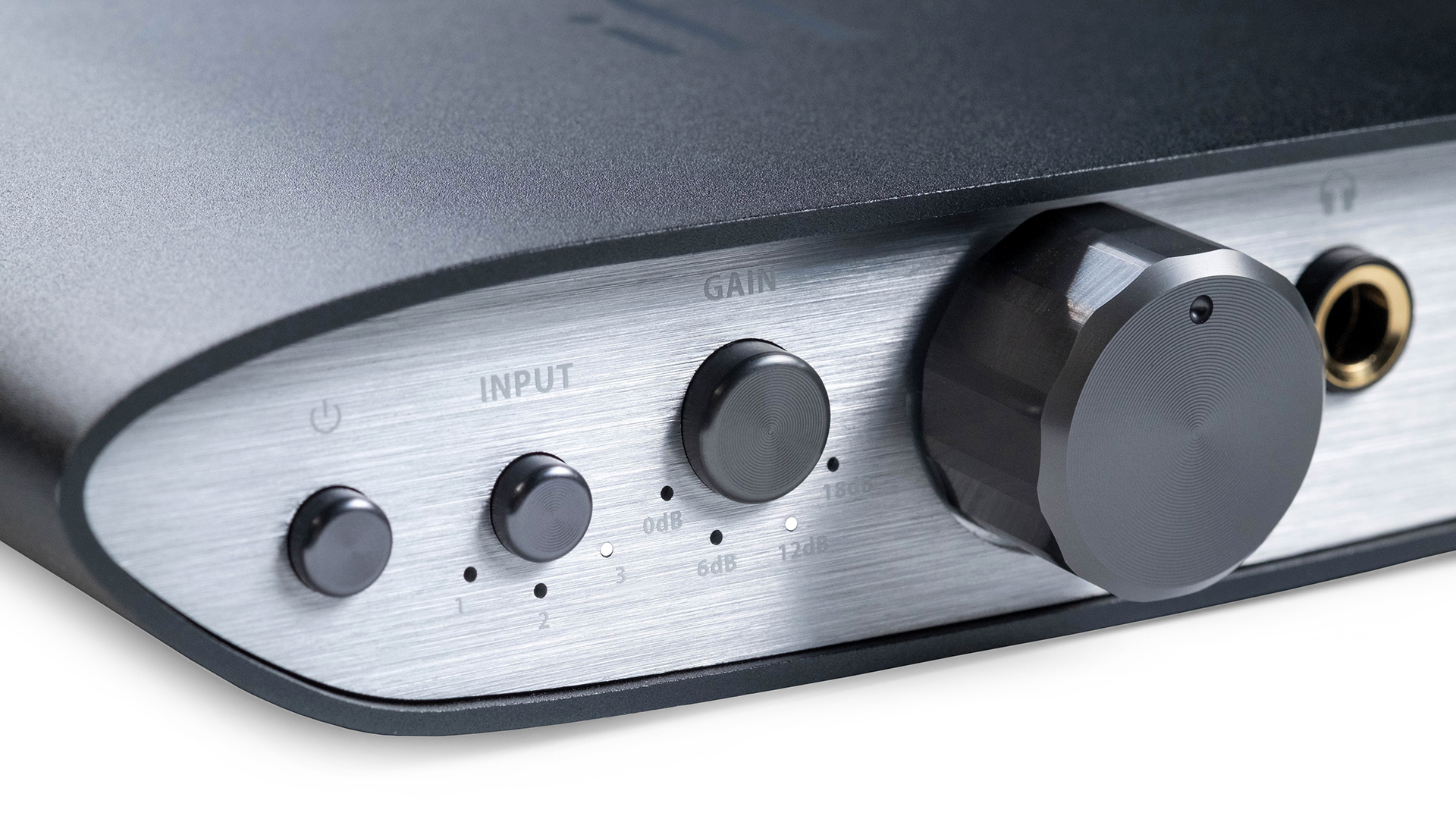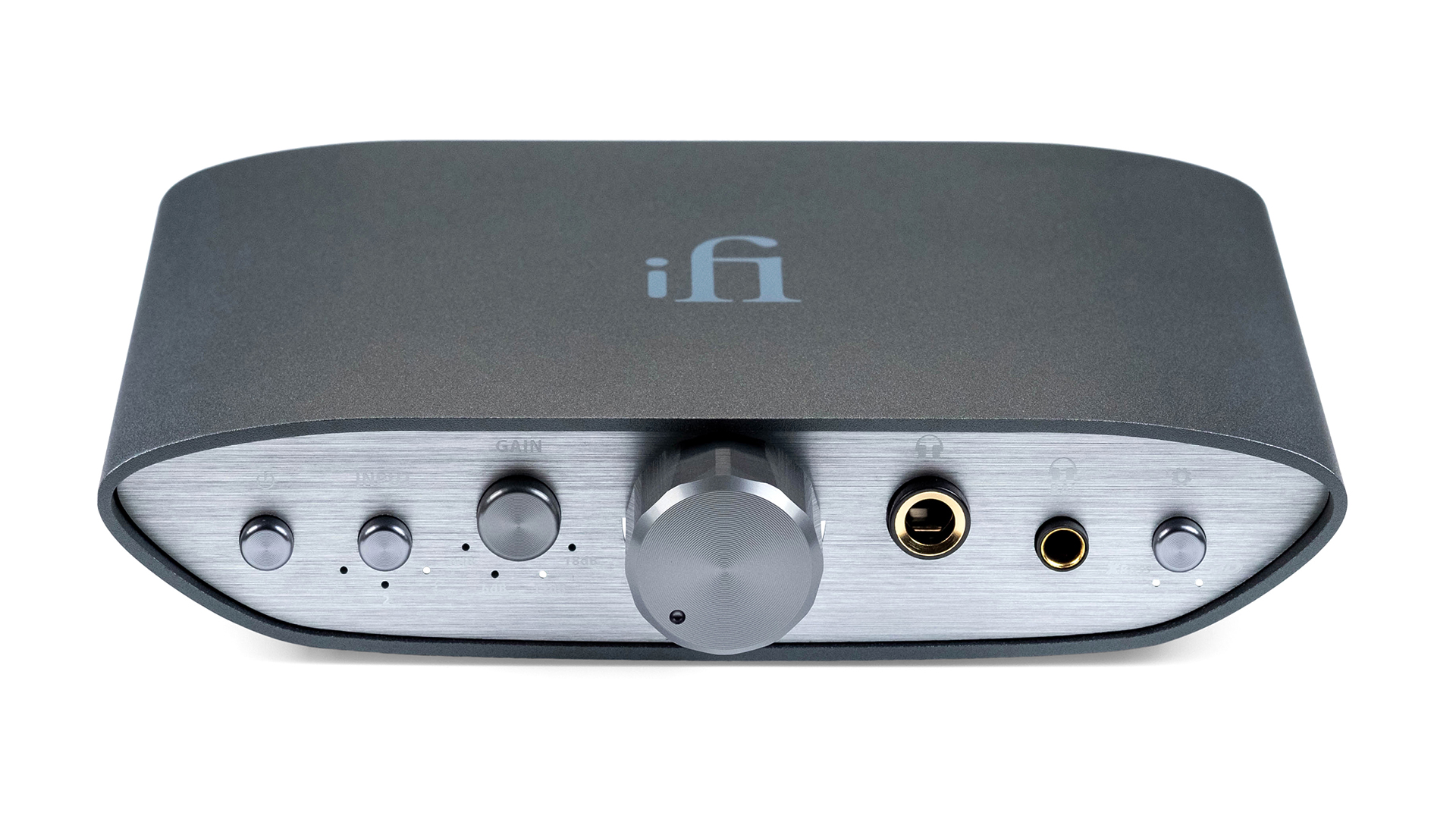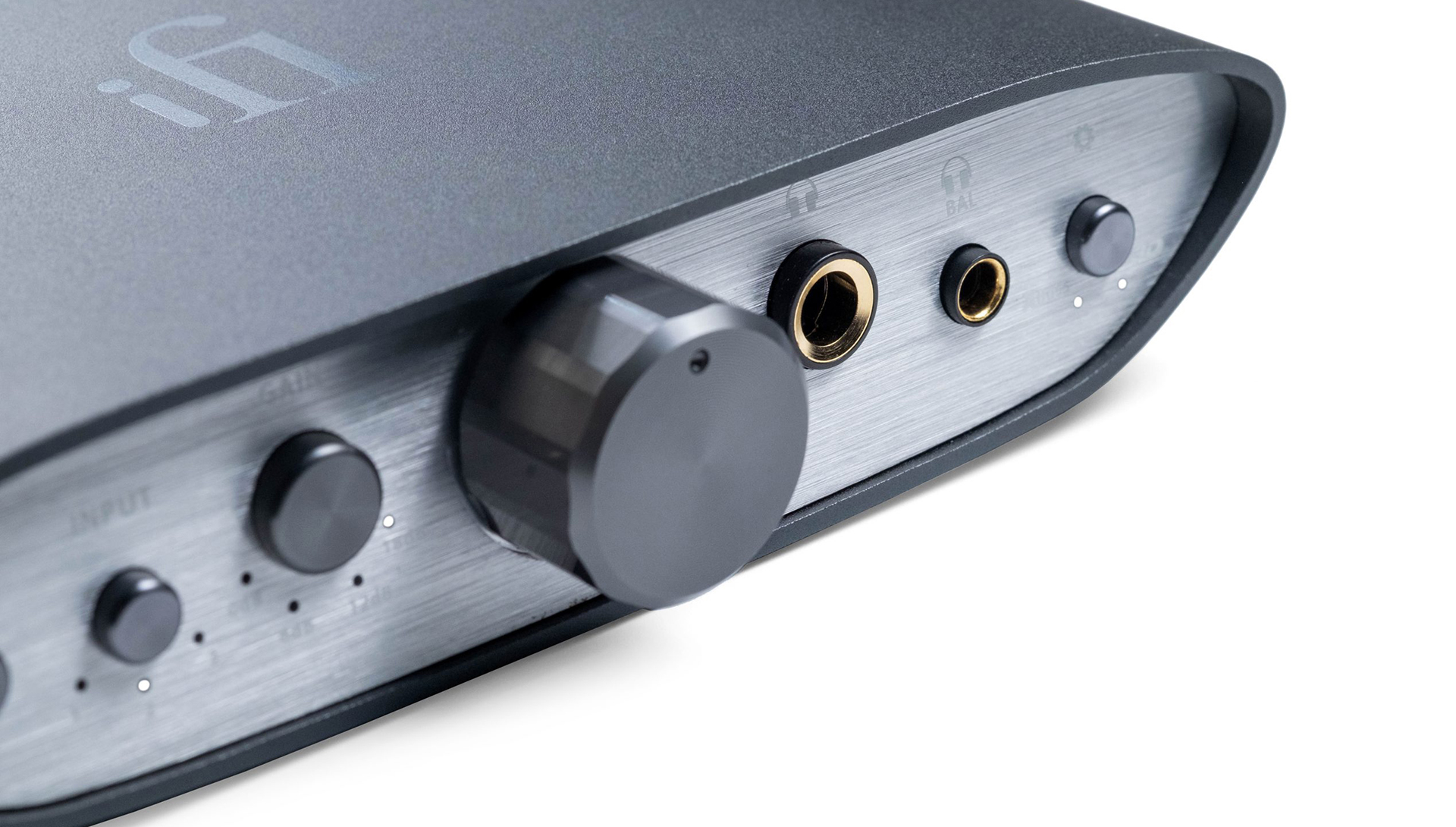What Hi-Fi? Verdict
If you’re after an affordable injection of clarity and detail for your wired headphones, iFi has it in the Can
Pros
- +
Expansive, detailed, sound
- +
High-end feature set
- +
Classy build and finish
Cons
- -
A little sonically polite
Why you can trust What Hi-Fi?
Often when the What Hi-Fi? team receives a new product for review, we like to pit it against a similarly specified class leader within its price category. But here, that’s not really possible, because the rather unique iFi Zen Can is an all-analogue headphone amplifier that costs just £149 ($150).
Features

iFi says the Zen Can has many features usually reserved for high-end headphone amps – it employs basically the same Class A discrete power output stage as the outfit’s flagship headphone amplifier, the Pro iCan, which is more than 11 times the price of the model on review here.
It also promises prodigious drive capability for such a modestly priced headphone amp, delivering 1600mW (7.2V) into 32 ohms from the single-ended output. It’s an amp that iFi bills as ‘nitro for your headphones’ and you certainly do get a substantial power jolt for the money.
Although petite, the Zen Can is a desktop headphone amp rather than a portable device since it requires mains power (a 5V charger is included). Although it offers wired listening, you could of course pair it with the Zen Blue to add Bluetooth connectivity. As well as a headphone amp, it can double as a preamp to feed a power amp or a pair of active speakers, with the use of a dedicated, balanced 4.4mm to XLR cable.
Build

As with the other iFi Zen Series products, such as the Zen DAC, Zen Phono stage and aforementioned Zen Blue, the Zen Can is smartly finished with a sturdy and neatly sized aluminium enclosure, the dimensions of which are akin to a large hip-flask or a small pair of binoculars.
In the centre of the Can’s front panel is a premium-feeling rotary volume control. To the left, beside the power button and input switch, is a control for selecting the appropriate gain, with little white LED lights to denote the level you’ve selected. You get four settings in six steps – 0dB, 6dB, 12dB and 18db. These options ensure good headphone matching and an adequate range of operation for the volume control.

Inputs 4.4mm, RCA, 3.5mm jack
Frequency response 20Hz - 20kHz
Dimensions (hwd) 158 x 117 x 35cm
Weight 515g
To the right are a pair of headphone outputs – a 6.3mm output for headphones that have a standard single-ended connector (compatible with all headphones, provided you have a 3.5mm-to-6.3mm adapter), and a 4.4mm Pentaconn balanced output for headphones with a balanced connection.
Next to the headphone sockets is a button to engage the latest versions of iFi’s ‘XBass’ and ‘3D’ sonic tailoring options for headphones. Again, tiny LED lights signify which options are deployed. XBass adjusts the frequency response to augment low-frequency performance, which could be useful with open-back headphones that might ‘leak’ deep bass. We try it with our Grado SR325e cans and like the extra ounce of power through the low end. It’s not particularly subtle, but it is fun.
Meanwhile, 3D aims to compensate for the ‘in-head localisation’ effect that can occur when using headphones to listen to music that was mixed using a pair of speakers. It does a good job of widening the headphone soundstage to deliver a more speaker-like experience. Both XBass and 3D engage purely analogue processing and may be bypassed entirely if you prefer, but there’s much to like about them – particularly the immersive and opened-out presentation we’re treated to when using 3D.
Around the back, the Zen Can offers stereo RCA and 3.5mm inputs, plus a balanced 4.4mm Pentaconn input. There’s also another 4.4mm connection to provide a balanced output so that the iFi can connect to an appropriately equipped power amplifier or pair of active speakers. All the Zen Can’s inputs and outputs are gold plated, too – a nice premium touch.
Though Class A circuitry often produces a lot of heat, the iFi Zen Can only runs slightly warm – it never gets hot, even when we keep it running overnight. That’s no mean feat and a tribute to iFi’s engineers.
All in all, it's a lot of attention to detail within a resoundingly classy build. The fact that iFi has implemented all of this in a headphone amp retailing for just £149 ($149) is certainly impressive.
Sound

We stream a Tidal Master file of FKA twigs’ Two Weeks from our MacBook Pro, and the heavily altered vocal and bassy intro are expansive and cohesive. Twigs’ ethereal vocal is three-dimensional, textured, well-timed and hugely impactful. It’s a solid step-up in terms of detail and space over simply plugging the same Grado headphones into our laptop.
Switching to a hi-res (24-bit/88.2kHz) FLAC file from our server, we listen to Michael Jackson’s Thriller album in its entirety. There’s a human feel to Jackson’s vocal, alongside a pleasingly musical and competent layering of each musical passage. We play Billie Jean and while the strings toy with our left ear, a synth presents itself to our right, and Jackson’s numerous harmony lines are all different, emotive and noteworthy.
The melodic outro to Human Nature feels sparkling and accurate across the frequencies too, thanks in part to the space it is afforded, while often imperceptible vocal licks as the track ends aren’t lost. It may not be the liveliest presentation, but it still entertains.
We stream a Tidal Masters file of Joy Division’s Love Will Tear Us Apart, this time on our Astell & Kern Kann Alpha portable music player (using its 4.4mm Pentaconn balanced output), and there’s just a bit of excess politeness to the sound. This track is raw and untethered, but through the iFi it’s a shade off for rhythmic precision and attack. That said, we look again at the Zen Can’s price and find it easy to forgive.
Verdict
The iFi Zen Can is a resoundingly good upgrade on plugging your wired headphones directly into your laptop or other source. It’s a solid, talented and capable little performer. And on top of this, it offers a premium-feeling build for a truly affordable price.
SCORES
- Sound 5
- Features 5
- Build 5
MORE:
Read our guide to the best headphone amplifiers
Read our iFi Zen DAC review
Read our iFi Zen Blue review
What Hi-Fi?, founded in 1976, is the world's leading independent guide to buying and owning hi-fi and home entertainment products. Our comprehensive tests help you buy the very best for your money, with our advice sections giving you step-by-step information on how to get even more from your music and movies. Everything is tested by our dedicated team of in-house reviewers in our custom-built test rooms in London, Reading and Bath. Our coveted five-star rating and Awards are recognised all over the world as the ultimate seal of approval, so you can buy with absolute confidence.

